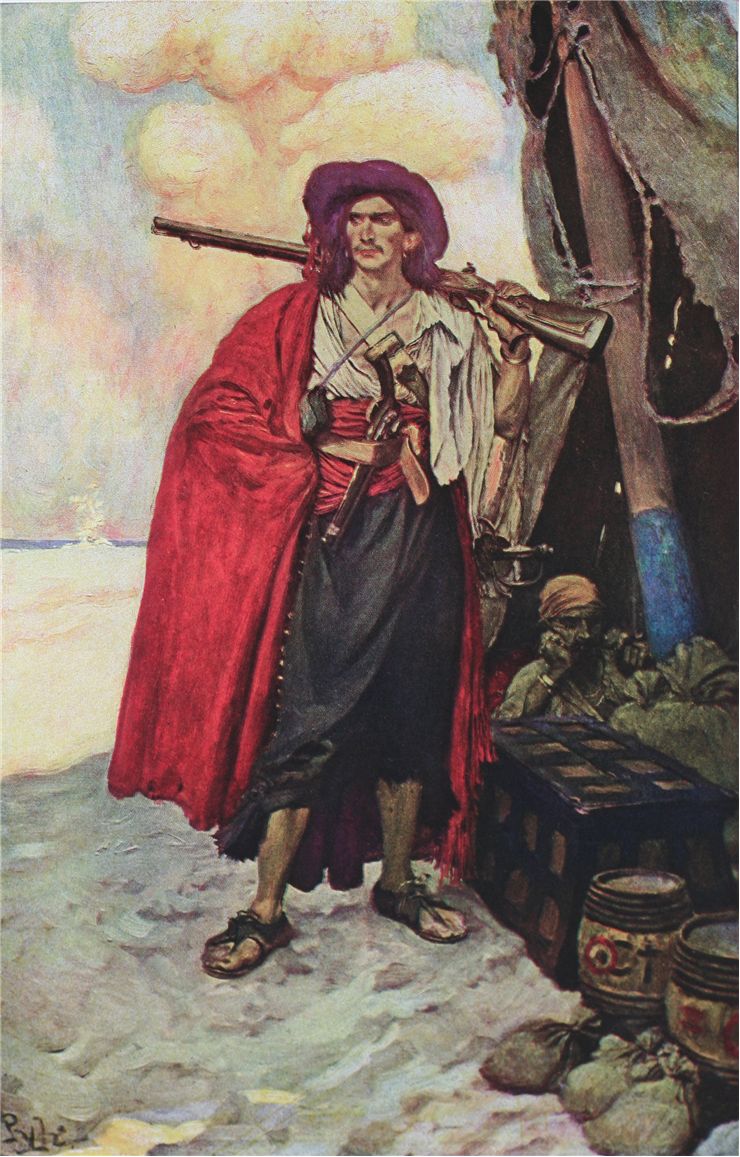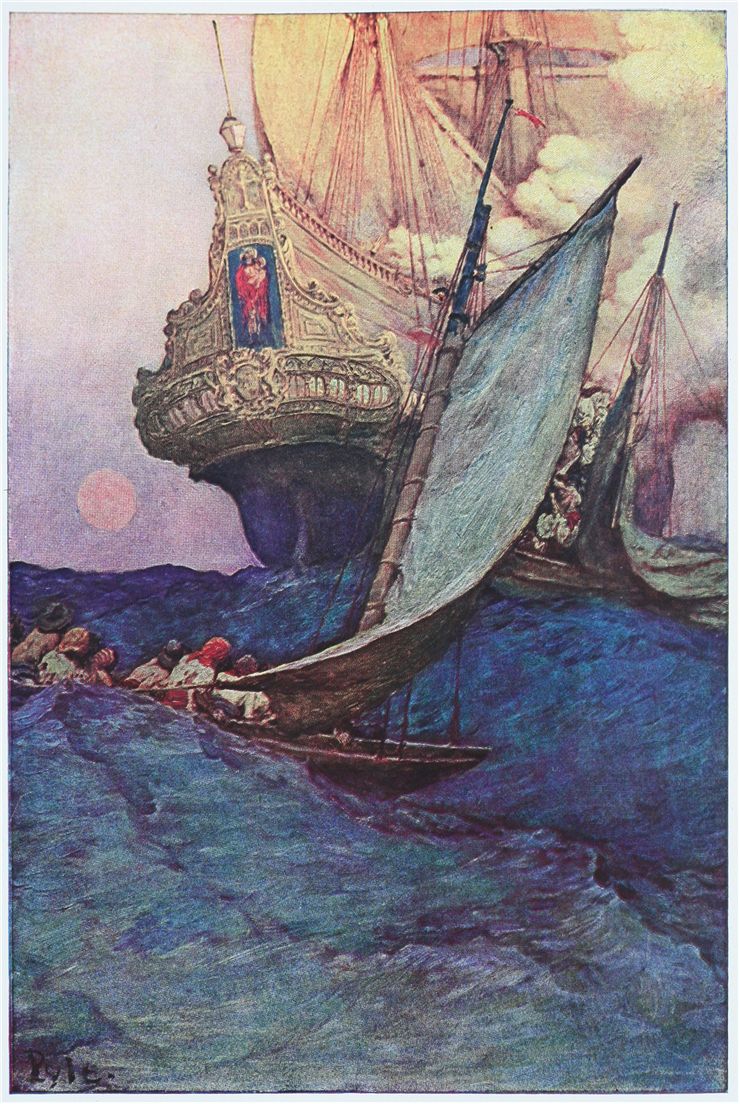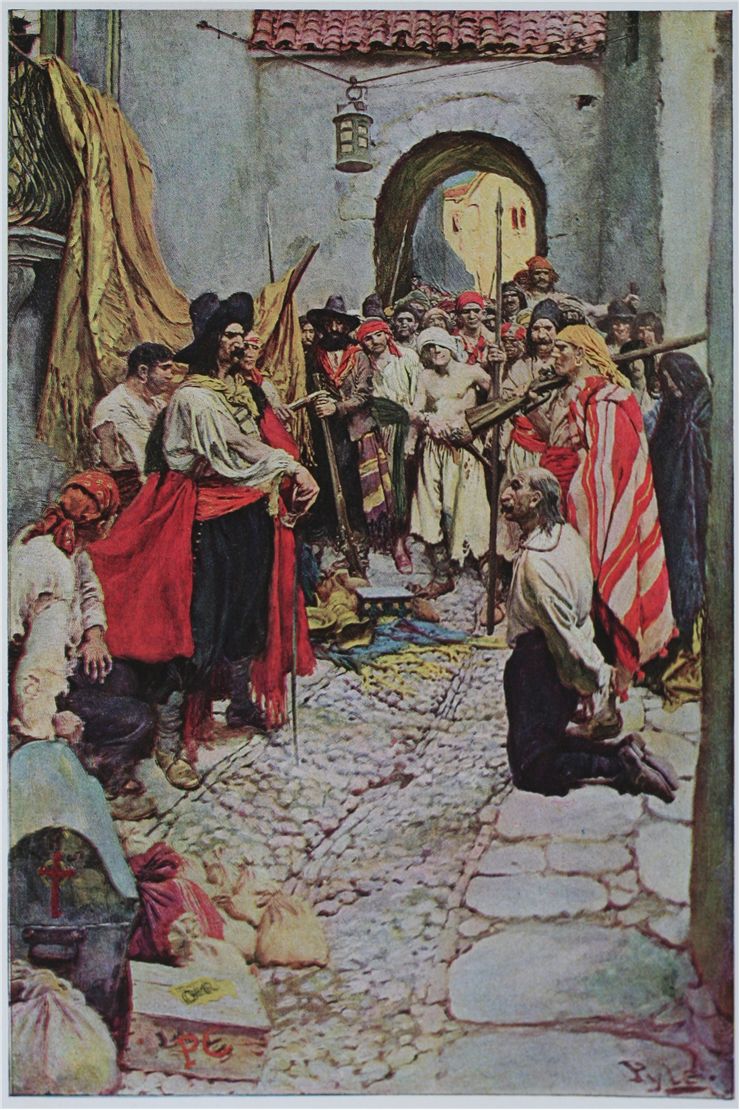The Buccaneers
History of the buccaneers
The buccaneers were the semi-lawful sailors and soldiers who harassed Spanish ships and ports in the Caribbean Sea during 17th century. To Spain, they were just the ordinary pirates, but for their nations the buccaneers were a lot more than that.
The Spanish considered region of the Caribbean Islands, from the Isthmus of Panama to the mouth of the Orinoco River, as their own treasure house. That region is also known as the Spanish Main. It was the point of departure for enormous wealth from the 16th to the 18th century. Spanish transported gold, silver and many other values and treasures from the New World to their homeland.
England, France and many other European nations also have their interest in wealth of the Caribbean islands and American continents. However, Spain strived to keep her possessions from the rest of the world by any means. When English occupied Jamaica, providing a base for the buccaneers to launch theirs attack to Spanish settlements, the conflict inflated, as the rise of the buccaneers.
The Buccaneers got their name from the word boucanier. In beginning, they were just the ordinary European settlers and adventurers, mostly French and English, who inhabited on Hispaniola and some other nearby Caribbean islands. The most of them were hunters who earned for their living by selling smoked meat of wild cattle and boars to the passing ships. They were often seen while cooking that meet on the wooden frames and drying it in the sun. The Tupí Indian hunters originally used similar frames, called boucane. That is how the buccaneers got their name.
As those early buccaneers were under the constant treat, they were forced to change locations of living. In mid 1620s they finally found a safe establishment in island of Tortuga. Although Spaniards tried to drive out French and British settlers from the island several times, eventually they became so strong and well organized that they started to attack Spaniards instead.
Support was constantly arriving in many French, Dutch and English adventurers. The buccaneers started with small raids in Windward Passage by encountering passing merchant vessels. Soon they established more colonies, got more powerful ships, became more ambitious. Although they were slowly becoming like classic pirates, their attacks were based only on Spanish vessels. Unlike classical pirate's activities, buccaneers organized both naval and land attacks. Since 1630, towns in American Continents were regularly harassed.
Buccaneers' activates eventually became more and more legitimate as they often acquired a letters of marque. As Spain was in war with particularly all European nations, the buccaneers got official authorization from their colonial governments for legal attacks on the enemy property. When English captured Jamaica in 1655, the government officially assigned buccaneers to defend the island and launch attacks. Despite the most French buccaneers stayed in Tortuga, Port Royal became another big buccaneer's stronghold.
The buccaneers were also known as the "Brethren of the Coast". Compared to the pirates from the beginning of 18th century, the buccaneers attacked with much more powerful armies. They had better organization and higher goals. For example, the most famous name among them, Sir Henry Morgan, organized enormous fleets and robbed some of the biggest and richest Spanish towns like Panama.
When the war between England and Spain ended in 1670, the English government forbade any further buccaneers' activities. Even the colonial governors who still supported them faced trials. However despite anti-piracy law, many Frenchmen still continued to raid Spanish colonies until 1697. With truce between France and Spain, even the last buccaneers disappeared from the Caribbean.


